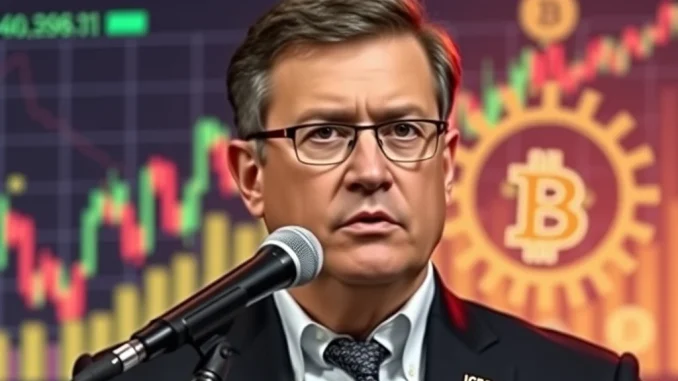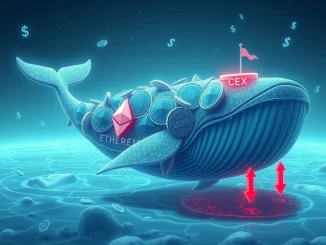
The crypto market thrives on innovation, but trust remains its most valuable asset. Recent events, like the controversy surrounding the Movement Labs token deal, challenge that trust. Evgeny Gaevoy, CEO of major crypto market maker Wintermute, is now speaking out, offering a candid assessment and calling for significant changes to industry practices.
Wintermute CEO Weighs In on Market Integrity
Speaking on the Unchained podcast, Wintermute CEO Evgeny Gaevoy shared his perspective on the recent Movement Labs token sell-off incident. His comments cut through the noise, suggesting that claims of ignorance regarding such deals are often unfounded within the industry.
Gaevoy emphasized a fundamental point about the relationship between projects and market makers:
- Market makers typically operate with the explicit knowledge and approval of the project foundation or team.
- This close relationship means market makers are usually aware of deal specifics and conditions.
His statements imply that in situations like the one involving Movement Labs, parties involved likely had more information than publicly admitted.
Understanding the Market Maker Role in Token Deals
Market makers are essential liquidity providers in the crypto ecosystem. They facilitate buying and selling, narrowing the gap between bid and ask prices. Their agreements with token projects often involve receiving tokens to manage market activity.
However, the structure of the Movement Labs deal, as described by Gaevoy, included an unusual element:
- A profit-sharing clause triggered by a specific, high valuation ($5 billion).
- Gaevoy described this particular clause as ‘unprecedented’ and not aligned with typical industry standards for market-making agreements.
This type of clause raises questions about incentives and potential conflicts of interest, especially during token distributions or sell-offs.
The Need for Crypto Transparency
The controversy highlights a persistent challenge in the digital asset space: a lack of sufficient crypto transparency regarding commercial agreements, particularly those involving significant token flows like market maker deals or early investor distributions.
Gaevoy strongly advocates for a shift towards greater openness. He argues that increased transparency is not just a best practice, but a necessity for the market’s evolution.
Why is this transparency crucial?
- Rebuilding Investor Trust: Incidents like the Movement Labs situation erode confidence. Open disclosure helps restore faith.
- Market Maturation: Transparent practices signal a move towards a more professional and predictable market environment.
- Avoiding Regulatory Pressure: Proactive transparency can help the industry self-regulate and potentially mitigate the risk of heavy-handed external regulation.
Actionable Insight: Mandatory Disclosure
To address these issues head-on, the Wintermute CEO supports implementing mandatory disclosure requirements for market-making agreements. This would involve projects publicly detailing the terms of their deals with market makers, including token allocations, vesting schedules, and any performance or profit-sharing clauses.
Implementing such a standard across the industry would provide investors and the public with a clearer picture of how tokens are managed and distributed post-launch. It would hold both projects and market makers more accountable.
While implementing mandatory disclosure presents challenges, such as protecting commercially sensitive information, finding a balance is key to fostering a healthier market.
Conclusion
The criticism from the head of a major firm like Wintermute regarding the Movement Labs token deal serves as a stark reminder of the transparency gaps in the crypto market. Evgeny Gaevoy’s call for mandatory disclosure of market maker agreements is a significant step towards addressing these issues. Embracing greater crypto transparency is essential for building lasting investor trust, fostering market maturity, and navigating the complex regulatory landscape ahead. The industry must seriously consider implementing clearer standards for these critical relationships.



